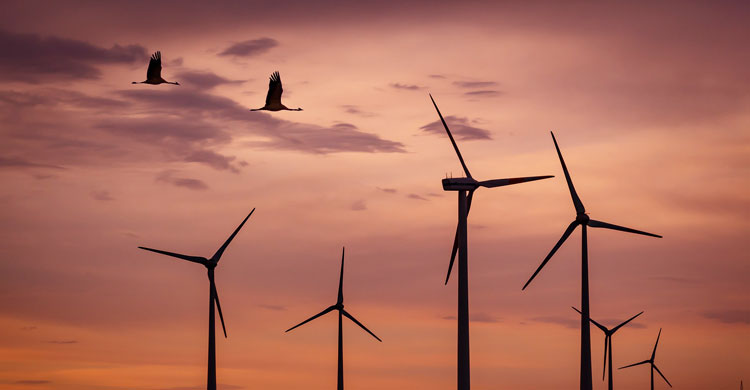Second Meeting of the Energy Task Force

© Marko Grothe/Pixabay.com
Bonn, 21 September 2017 – the second meeting of the multi-stakeholder Task Force on Reconciling Selected Energy Sector Developments with Migratory Species Conservation took place at the UN Premises in Bonn from 14 to 15 September under the chairmanship of Jürgen Friedrich of the German Federal Environment Ministry.
The meeting took stock of progress in the implementation of the Programme of Work, which was extended in time and scope to take account of the Energy Task Force’s broadening membership and remit as agreed at the first meeting in Cape Town last year. In particular, the participation of EUROBATS as a member of the Task Force implies an extension of the remit to consider effects of renewable energy technologies on bat species. Other new members include the Government of Kingdom of Saudi Arabia as well as the African Sustainable Energy Association and WindEurope, representing numerous stakeholders from the renewable energy industry.

The Task Force heard presentations of case studies describing the challenges facing national authorities in developing and implementing renewable energy strategies as well as technical reports on mitigation methods that help detect birds and bats as they approach wind turbine installations. Opportunities for further international collaboration were also explored, including with an international collaborative initiative, WREN (Working together to resolve environment effects of wind energy). The meeting also considered the Task Force’s contribution to the forthcoming 12th Meeting of the Conference of the Parties to CMS (COP12), in the form of a review of Parties’ implementation of CMS resolutions concerning renewable energy technologies and powerlines, and through the organization of a side event. Plans for side events during the UNFCCC COP23 (Bonn, 6-17 November 2017) to raise awareness on interactions between wildlife and renewable energy deployments were also discussed.
“The Task Force’s greatest strength is its broad membership bringing together representatives of the energy sector as well as conservation interests. Renewable energy is an indispensable element of achieving a carbon-free future, but it is not without risks, not least for wildlife. We have one chance to get this right, and the multi-stakeholder nature of the Task Force certainly enhances our chance of success.”
Bradnee Chambers, Executive Secretary of CMS
Constant Hoogstad of South Africa was elected as the Chair of the Task Force and James Pearce-Higgins of the British Trust for Ornithology was elected as Vice-Chair.
Last updated on 21 September 2017


